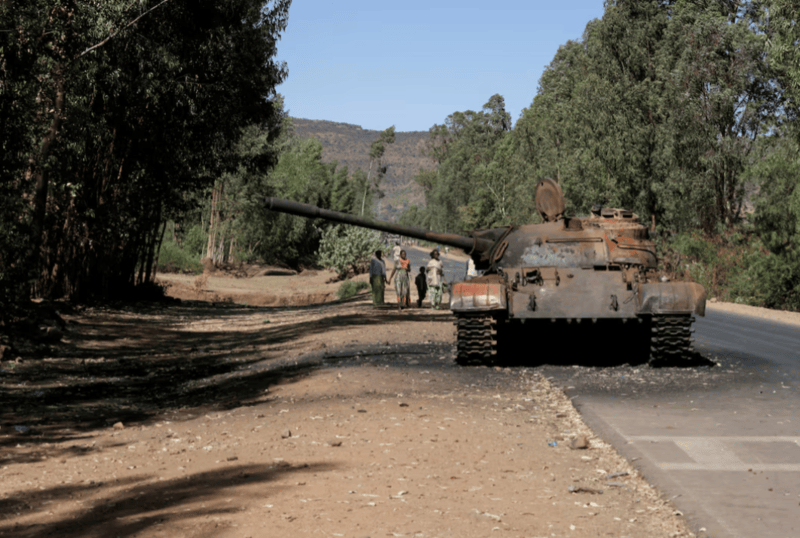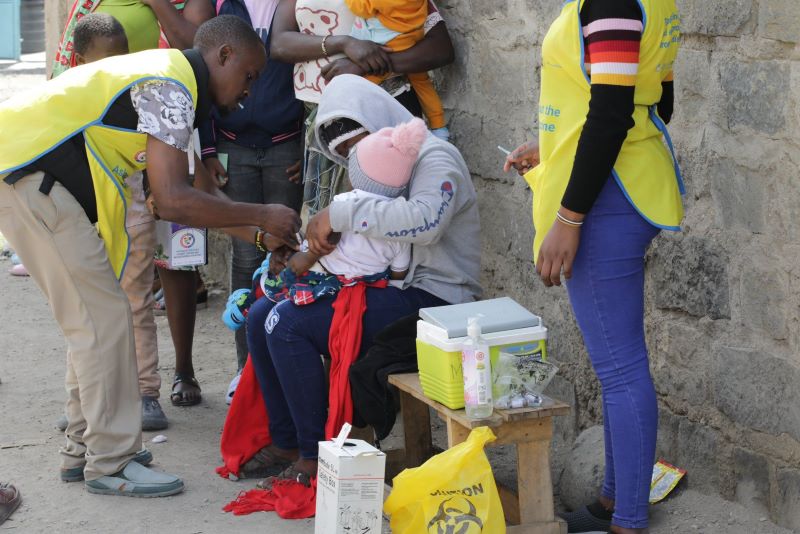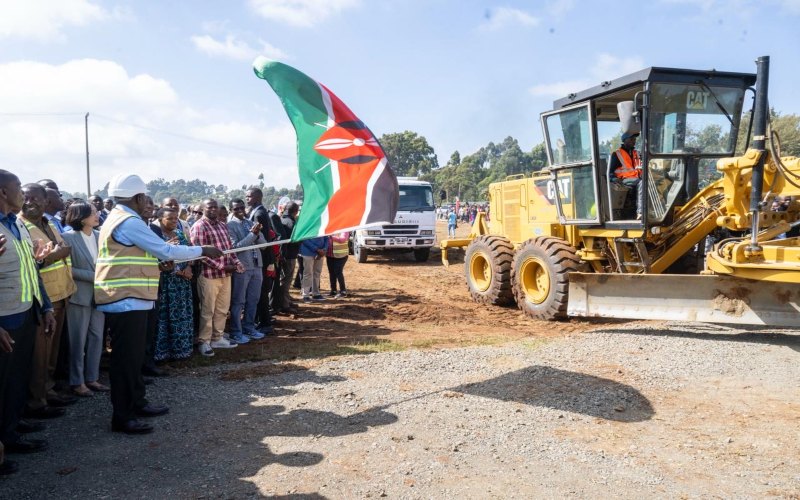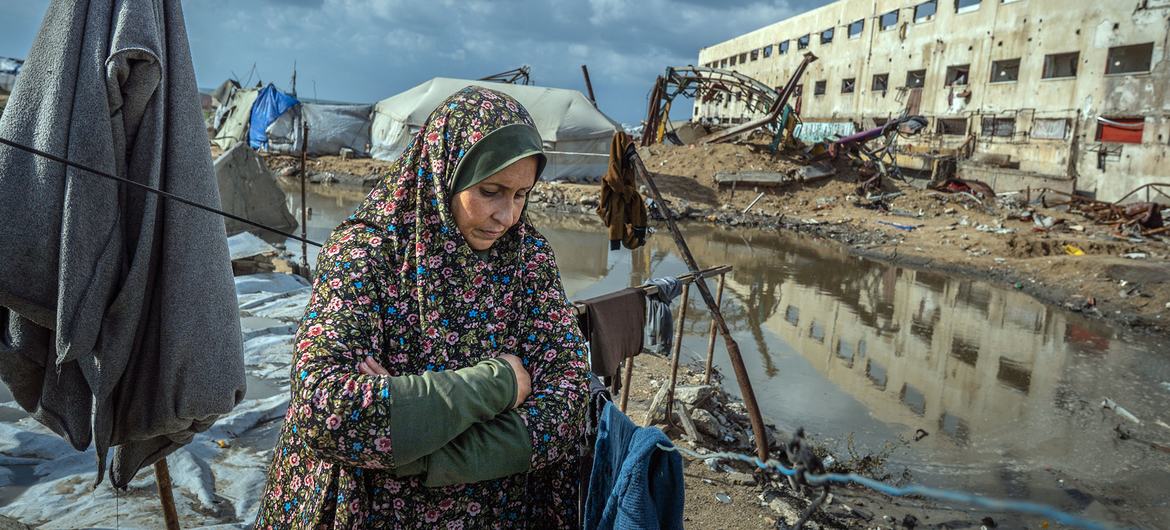EU countries urge resumption of dialogue between Ethiopian government, TPLF

The call comes amid growing concern over the faltering implementation of the 2022 Pretoria Agreement and renewed accusations between the two parties.
The European Union Delegation to Ethiopia, alongside diplomatic missions of its member states and Norway, has urged the resumption of political dialogue between the Government of Ethiopia and the Tigray People’s Liberation Front (TPLF) ahead of the upcoming national elections.
The call comes amid growing concern over the faltering implementation of the 2022 Pretoria Agreement and renewed accusations between the two parties.
More To Read
- Tanzania dismisses EU sanctions threat over human rights violations
- Nairobi to host EU-backed regional Maritime Security Week
- Kenya criticises ‘over-judicialisation’ after East African Court of Justice blocks EU trade deal
- Tanzania challenges EU debate on Tundu Lissu and post-election crisis
- Luanda Summit: Europe reinforces ties with Africa as competition intensifies
- Technology of freedom, risk of violence: Digital divide facing women in post-war Tigray
“We also call for the resumption of political dialogue between the CoHA signatories ahead of the upcoming general elections,” the joint statement said, referring to the Cessation of Hostilities Agreement (CoHA) signed in November 2022 to end the two-year war in northern Ethiopia.
Marking the third anniversary of the CoHA, the EU and Norway stressed that consolidating peace in northern Ethiopia and beyond remains vital. They reaffirmed readiness to support ongoing CoHA-related processes, including the safe return of displaced persons “in accordance with international humanitarian law and best practices”, and the pursuit of credible, victim-centred transitional justice.
“Accountability, respect for human rights, particularly those of women and girls, and reconciliation remain essential for healing and delivering justice across all regions affected by conflict,” the statement said.
The diplomatic missions also encouraged all stakeholders to engage constructively in Ethiopia’s National Dialogue process and to resolve ongoing conflicts peacefully across the country.
Meanwhile, the TPLF issued a statement accusing the federal government of undermining the Pretoria Agreement and urged international facilitators to reassess the peace process. The group said that “the people of Tigray continue to endure death, displacement, and suffering,” blaming the federal government for “violating the spirit” of the accord.
It further accused the government of “conducting propaganda campaigns and organising armed groups to destabilise Tigray”, warning that Addis Ababa is “openly moving to break the Pretoria Agreement and wage another round of war.”
The TPLF called on the African Union and international partners, including the United States, to “convene a panel to evaluate the implementation status of the agreement” and advance the ceasefire into a permanent peace settlement.
“No political dialogue on justice, accountability, or the root causes of the war has begun,” the group added, noting that hundreds of thousands of internally displaced persons remain in dire conditions without aid or safe return.
Signed in Pretoria, South Africa, under the auspices of the African Union, the peace agreement ended two years of devastating war between the federal government and Tigrayan forces. However, implementation has faced repeated setbacks, with both sides accusing the other of non-compliance.
Stalled political dialogue
Efforts to initiate political dialogue between the federal government and the TPLF began in earnest in April 2024 but have since stalled.
On April 2, 2024, Adem Farah, Head of the Democracy Building Centre Coordinator Office with the rank of Deputy Prime Minister, led a federal delegation to Mekelle to kick-start long-delayed talks as envisioned under the Pretoria Agreement.
The delegation, which included Defence Minister Abraham Belay and Transport and Logistics Minister Alemu Sime, was received by TPLF Chairman Debretsion Gebremichael and senior regional officials, including Tigray Interim Regional Administration (TIRA) President Getachew Reda.
According to a readout released by the TPLF, both sides “acknowledged that political talks between the two parties should have started much earlier” and agreed to hold regular discussions going forward.
Just over a week later, on April 13, 2024, senior representatives of the ruling Prosperity Party (PP) and the TPLF held their second meeting in Addis Ababa.
State media reported that both sides “agreed on the principles of party-to-party discussion and started identifying the agenda for the next discussion”. The brief video released about the meeting did not indicate whether Getachew Reda, who attended the first session in Mekelle, was present.
A third round of talks followed on May 15, 2024 in Mekelle, where the parties agreed on an agenda framework and emphasised the need to maintain peace. State media reported that both sides reached a consensus “to work towards lasting peace, focusing on the first agenda item”, and discussed incidents in the disputed Raya Alamata district, which they agreed “should not occur and run counter to the peace process”.
They pledged to resolve disputes through dialogue, promote peace-focused communication, and create a conducive environment for the full implementation of the Pretoria Agreement. However, the talks failed to advance further, and no subsequent meetings have been reported since May. The dialogue process, seen as a central pillar of the peace accord, has effectively stalled, with tensions again rising between Addis Abeba and Mekelle.
A fragile peace under strain
However, the relations between the two have failed to improve. Last week, the TPLF renewed its accusation that the federal government is violating and undermining the Pretoria Agreement, warning that the accord is “more seriously threatened than ever before.”
In a statement issued on Thursday, the group said Addis Ababa has failed to implement key provisions of the deal, including the withdrawal of forces from Tigray and the return of displaced residents.
“The Ethiopian government has been working to make the agreement meaningless,” the statement said, alleging that government-backed forces continue to occupy parts of Tigray and obstruct the return of displaced people.
The TPLF further accused the government of minimising the scale of the conflict. Referring to Prime Minister Abiy Ahmed’s recent remarks in parliament, the group criticised him for describing the war as a “two-month conflict”, calling the comment “a mockery of the death and suffering of the people of Tigray.”
The party also says that the government is prioritising a referendum over the return of displaced persons, claiming efforts are underway “to demographically change the land and people of Tigray”.
“The danger of another round of war being waged by the Ethiopian government is very serious,” the TPLF warned, urging the African Union and international institutions to convene an urgent panel to save this endangered agreement.”
The accusation was made in response to the October 28 address to parliament by Prime Minister Abiy Ahmed, who accused the TPLF of breaching the CoHA, although he said his government “does not want more fighting in the Tigray region” and urged the focus to shift toward development.
Abiy also alleged that the TPLF continues to engage in contraband weapons and engage in unauthorised foreign relations, acts he said undermine the peace process.
“In Pretoria, we negotiated with General Tsadkan, Getachew Reda, Assefa Abreha and others,” Abiy told lawmakers. “But those who were not in Pretoria shout for the implementation of Pretoria. This is when the saying comes: when there is the woman who bore the child, the one who only carried the baby says, ‘I am the mother’.”
Addressing the TPLF’s legal status, Abiy said the group could regain its recognition by re-registering with the National Electoral Board of Ethiopia (NEBE). “The TPLF is primarily expected to respect the Election Board, respect the constitution, and hold the proper congress to become a legal party. This is not something difficult,” he said.
Since May 2025, the NEBE has revoked the TPLF’s legal status, citing its failure to comply with electoral requirements under a “special registration” framework. It came after, in February, the same year, the Board suspended the TPLF for three months for failing to hold a general assembly within the required timeframe following its provisional registration in August 2024. The decision has raised fears because it stripped the legal status of one of the two signatories of the CoHA.
The TPLF too has rejected NEBE’s decision, arguing that its pre-war legal status was reinstated under the Pretoria Agreement. “The Pretoria Agreement is the primary legal document directly linking our organisation and the FDRE government,” the party said.
Top Stories Today















































